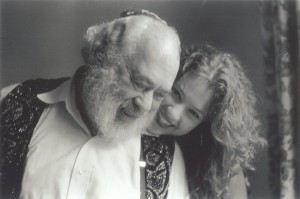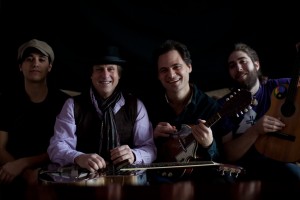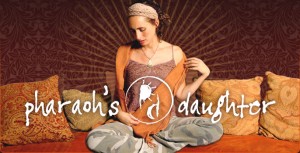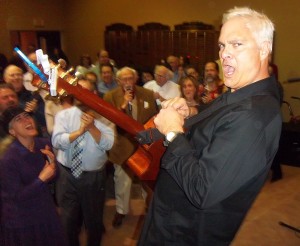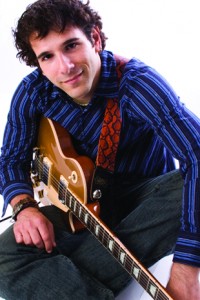Sweet Music 2016
I’m always thinking about music, singing and listening brings me great comfort, peace, motivation and satisfaction. I am energized when I hear new music such as the soundtrack from “Hamilton” or the Jewish fusion jazz ensemble Zion80. the music of Buffalo Springfield and Crosby Stills Nash and Young is still awesome as are Adele and Bruno Mars. All music has value and our interpretations are unique. I listen to everything and often, I feel transformed, transfixed and transported. Music fills my soul.
In preparation for Shabbat Shira on January 23 and The L’dor Vador concert in May, I’ve been reviewing some of my previous Hakol articles and listening to a great deal of music. Without a doubt, the most important influence in Jewish music during our time has been Rabbi Shlomo Carlebach, his music is both relevant on the bima and the concert halls, he has informed the modern Jewish music scene. Shlomo’s daughter has kept his legacy alive through her soulful singing, the youth of America sing his music, USY services are framed by Carlebach melodies. Most if not every Jewish artists’ repertoire is incomplete without a Carlrebach song. Many groups like our L’dor Vador artists C Lanzbom and Noah Salomon of Souldfarm, have recorded entire albums of Carlebach music. I’ve posted a biographical article that I wrote for Hakol in 2002 along with this essay on www.bnaitikvah.org. I hope you’ll find it informative and interesting.
In the meantime, what has happened to since the passing of Reb Shlomo of blessed memory in 1994 at the age of 69. Music expresses the rhythm of our souls Shlomo Carlebach is a huge influence on my davining, praying. His melodies lift us throughout our services and the Sons of Tikvah repertoire is lavishly covered by Carlebach songs. Of coarse you know his nigunim, (1,2,3,4 Ka de sheinu) on Friday night, Tov L’hodot and Barcheinu Avinu are a part of all Sons shows as well we sing them with spirit in shul when we parade the Torah or as a meditation after the amidah. There is a Carlebach melody for every occasion, solemn or joyful, especially for weddings.
Reb Shlomo made prayer and praying more accessible by delivering his message throughout the world and beyond the walls of the synagogue. He took the classical tradition of lush melodies from his Austrian birthplace, the heart of his music from his chassidic tradition and reached out to a generation of young people in the 60’s who were remaking popular culture, with his folk guitar. Carlebach is the Bob Dylan and the Beatles of Jewish music, he was so prolific, many of his compositions were never recorded and are now being discovered and introduced by Eitan and Shlomo Katz, they have each released collections of this great music, I love their music!
Infusing Jewish music from Neshama Carlebach, Soulfarm,Greg Wall, Debbie Friedman, Sam Glaser, Pharaoh’s Daughter, Six 13, Josh Nelson, Craig Taubman, or Yossi Malovany, into our lives will make us a happier people. It might even make us better people.
I hope to inspire you with this music throughout our upcoming musical events and services.
Worship the Lord in gladness; come before God with joyous song.
B’simcha
Cantor Bruce Rockman
“The Singing Rabbi” from Hakol February 2002
For the sake of my brothers and friends.For the sake of my sisters and friends Please let me ask, please let me sing peace to you. This is the house, the house of the Lord I wish the best to you.
From his sweet heart and soul Rabbi Shlomo Carlebach z’l sang these words from Psalms. Who was Rabbi Shlomo Carlebach? Alternately known as “The Dancing Rabbi,” “The Singing Rabbi,” or “The Hippie Rabbi,” Shlomo Carlebach has influenced a generation as a bridge-builder and ambassador of love and joy, his message of openness and inclusion spoke to Jews and non-Jews of all persuasions. Shlomo Carlebach and his twin brother Elyyahu were born in Germany on 18 Tevet 5685 (January 14, 1925). Their father, Naftali was a scholar and was a leading Rabbi in Berlin and their mother Pessia, was known for her deeds of charity. After the Nazis came to power in 1933, the family left Berlin and moved to Austria. For a time the family thrived in Austria, where Naftali was appointed chief rabbi of an important Jewish community. The twins had the advantage of wonderful teachers and rabbinic greatness was predicted for both boys. As the Nazi influence grew, the family escaped Europe to the United States and took up residence in the Williamsburg district in New York. Shlomo’s spiritual quest began very early in his life. With his close friends, he would spend hours among the trees and lakes absorbing melodies and philosophy. In 1943, Shlomo Carlebach was among the young scholars chosen to help lay the foundation for a new Torah center, the Beth Medrash Govoha in Lakewood. Today, the graduate school of Rabbinics, since named for him, has 1000 students on its roll today. Ultimately Rabbi Carlebach found that he needed to bring his gift to more people and was not satisfied to reach great personal goals, such as being the head of the Torah Center. The Lubavitcher Rebbe R. Menachem Mendel Schnerson z’l, influenced Carlebach to choose a different path, he persuaded Shlomo that self-sacrifice on the behalf of the Jewish people means total devotion, giving oneself body and soul to the cause. Thus began his career in Jewish outreach. Carlebach was a radical in the 1950’s and 60’s. He sang with Bob Dylan and Joni Mitchell. Still appearing very traditional, but very in step with the times, his outreach to the Jewish community grew, but due to his radical approach, was unable to continue his formal association with the Lubavitcher movement. Thus began the Carlebach legend. I hope that I have peaked your interest. Starting on Tuesday evening February 5, with my new adult education class, “The Soul of Shlomo Carlebach”, I will attempt to fill in some more of the blanks for you. We will learn more about this influential Rabbi’s life. In addition we will be able to sing and learn from his beautiful music, much of which has influenced, our synagogue experience. Also, will also have the opportunity to listen to and re-tell some of the Rabbi Carlebach’s inspiring and enchanted tales.
Worship the Lord in gladness; come before God with joyous song.
B’simcha
Cantor Bruce Rockman

